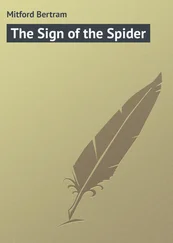He hung up with a sigh and thought again of Hanna, and of August and the checked floor reflected in the wardrobe doors, and of all kinds of things which seemed irrelevant just then. Almost absent-mindedly he said to himself, “They’re after me.”
He could see that it was not unreasonable, even though he had always refused to believe that it would actually come to violence. But what, in fact, did he know? Nothing. Besides, he could not be bothered to address it now. He continued his search for information on Nadia, and what implications this might have for his son, but that was insane. He was burying his head in the sand. Despite Grane’s warning he kept surfing and soon came upon the name of a professor of neurology, an expert on savant syndrome called Charles Edelman. Instead of reading on as he normally would — Balder always preferred the written to the spoken word — he called the switchboard at the Karolinska Institute.
Then it struck him how late it was. This Edelman was unlikely to be at work still, and his home number was not on the website. But wait a moment... he was also the head of Ekliden, an institution for autistic children with special abilities. Balder tried calling there. The telephone rang a number of times before a woman answered and introduced herself as Nurse Lindros.
“I’m sorry to disturb you so late in the evening,” Balder said. “I’m looking for Professor Edelman. Might he possibly still be there?”
“Yes, in fact, he is. No-one is setting off for home in this dreadful weather. Who may I say is calling?”
“Frans Balder,” he said, and in case it might help he added: “Professor Frans Balder.”
“Just a moment,” Nurse Lindros said, “I’ll see if he’s available.”
Balder stared down at August, who was once again gripping his pencil hesitantly, and that worried him somehow, as if it were an ominous sign. “A criminal organization,” he muttered again.
“Charles Edelman,” a voice said. “Am I really talking to Professor Balder?”
“The very same. I have a little—”
“You can’t know what an honour this is,” Edelman said. “I’m just back from a conference at Stanford where we actually discussed your work on neural networks; in fact we were even asking ourselves if we neurologists don’t have a great deal to learn about the brain through the back door, as it were, through A.I. research. We were wondering—”
“I’m flattered,” Balder interrupted. “But right now I have a quick question for you.”
“Oh, really? Is it something to do with your research?”
“Not at all. I have an autistic son. He’s eight years old and hasn’t yet said a single word, but the other day we passed a traffic light on Hornsgatan and afterwards...”
“Yes?”
“He just sat down and drew it at lightning speed, completely perfectly. It was astonishing!”
“And you want me to come and take a look at what he’s done?”
“I’d like that. But that’s not why I called. The fact is that I’m worried. I’ve read that perhaps drawing is the way in which he interacts with the world around him, and that he might lose this ability if he learns to talk.”
“I can tell that you’ve been reading about Nadia.”
“How do you know that?”
“Because she’s always mentioned in this context. But... may I call you Frans?”
“Of course.”
“Excellent, Frans, and I’m so glad you called. I can tell you straight away that you have nothing to worry about. On the contrary — Nadia is the exception that proves the rule, no more than that. All research shows that speech development actually enhances savant abilities. It can happen, of course, that children lose those skills, but that is mostly due to other factors. They get bored, or there’s a significant event in their lives. You probably read that Nadia lost her mother.”
“I did.”
“Maybe that was the reason, even though neither I nor anyone else can know for sure. But there’s virtually no other documented case of a similar evolution, and I’m not just saying this off the top of my head, or because it happens to be my own hypothesis. There is broad consensus today to the effect that savants have everything to gain from developing their intellectual skills on all levels.”
“And you’re sure of that?”
“Yes, definitely.”
“He’s also good at numbers.”
“Really?” Edelman said thoughtfully.
“Why do you say that?”
“Because it is extremely rare in a savant for artistic ability to be combined with mathematical talent. These two different skills have nothing in common, and sometimes they seem even to block each other.”
“But that’s how it is with my son. There’s a kind of geometric precision about his drawings, as if he had worked out the exact proportions.”
“How fascinating. When can I see him?”
“I don’t really know. For the time being I only wanted some advice.”
“In that case my advice is clear: make an effort with the boy. Stimulate him. Let him develop his skills in every way.”
“I...” Balder felt a strange pressure in his chest and found it hard to get the words out. “I want to thank you,” he said. “Really thank you. Now I have to...”
“It’s been such an honour to talk to you; it would be wonderful to be able to meet you and your son. I’ve developed quite a sophisticated test for savants, if I may boast a little. I could help you get to know the boy better.”
“Yes, of course, that would be terrific. But now I must...” Balder mumbled, without knowing what he wanted to say. “Goodbye, and thank you.”
“Oh, my pleasure, really. I hope to hear from you again soon.”
Balder hung up and sat still for a moment, his hands crossed over his chest, and looked at his son. August was still gazing at the burning candle, the yellow pencil in his hand. A shudder went across Balder’s shoulders, and the tears came. Whatever else you might say about Professor Balder, he was not one to cry easily.
In fact he could not remember when it had last happened. Not when his mother died, and definitely not when watching or reading anything. He thought of himself as a block of stone. But now, in front of his son with his rows of pencils and crayons, the professor cried like a child and he just let it happen, and of course it had been Charles Edelman’s words.
August would be able to learn to speak and could keep drawing, and that was overwhelming news. But Balder was not crying just because of that of course. There was also the drama at Solifon. The death threat. The secrets he was privy to and the longing for Hanna or Farah or anyone who could fill the gap in his heart.
“My little boy!” he said, so emotional he failed to notice his laptop switch itself on and show pictures from one of the surveillance cameras outside the house.
Out in the garden, in the blustering storm, there was a tall, thin man in a padded leather jacket, with a grey cap pulled down to conceal his face. Whoever it was knew that he was being filmed, and even if he seemed lean and agile there was something in his swaying walk which was reminiscent of a heavyweight boxer on his way into the ring.
Grane was sitting in her office at Säpo searching the web and the agency’s records. She did not really know what she was looking for. But something unfamiliar and worrying was gnawing away at her, something vague.
Her conversation with Balder had been interrupted by Helena Kraft, chief of Säpo, who was looking for her again to discuss the same matter as before. Alona Casales at the N.S.A. wanted to continue their conversation; this time she sounded calmer, and again a little flirtatious.
Читать дальше












